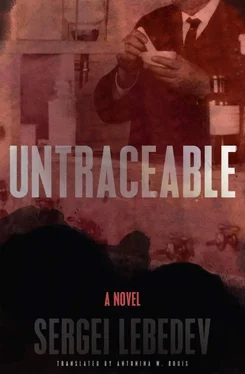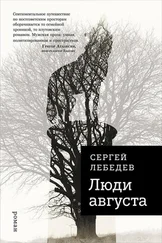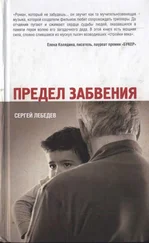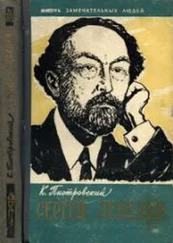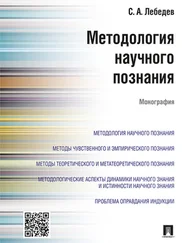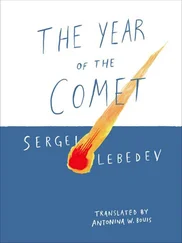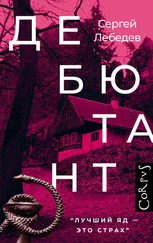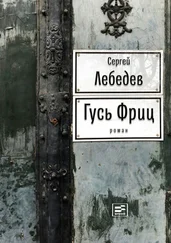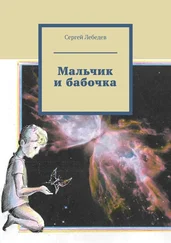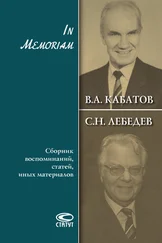Сергей Лебедев - Untraceable
Здесь есть возможность читать онлайн «Сергей Лебедев - Untraceable» весь текст электронной книги совершенно бесплатно (целиком полную версию без сокращений). В некоторых случаях можно слушать аудио, скачать через торрент в формате fb2 и присутствует краткое содержание. Город: New York, Год выпуска: 2021, ISBN: 2021, Издательство: New Vessel Press, Жанр: Современная проза, на английском языке. Описание произведения, (предисловие) а так же отзывы посетителей доступны на портале библиотеки ЛибКат.
- Название:Untraceable
- Автор:
- Издательство:New Vessel Press
- Жанр:
- Год:2021
- Город:New York
- ISBN:978-1-939931-90-0
- Рейтинг книги:3 / 5. Голосов: 1
-
Избранное:Добавить в избранное
- Отзывы:
-
Ваша оценка:
- 60
- 1
- 2
- 3
- 4
- 5
Untraceable: краткое содержание, описание и аннотация
Предлагаем к чтению аннотацию, описание, краткое содержание или предисловие (зависит от того, что написал сам автор книги «Untraceable»). Если вы не нашли необходимую информацию о книге — напишите в комментариях, мы постараемся отыскать её.
Untraceable — читать онлайн бесплатно полную книгу (весь текст) целиком
Ниже представлен текст книги, разбитый по страницам. Система сохранения места последней прочитанной страницы, позволяет с удобством читать онлайн бесплатно книгу «Untraceable», без необходимости каждый раз заново искать на чём Вы остановились. Поставьте закладку, и сможете в любой момент перейти на страницу, на которой закончили чтение.
Интервал:
Закладка:
“So this guy should have been bumped off in front of a camera. Or sold into slavery. Who would pay the ransom for the conscript?” Grebenyuk stopped. “Instead, he killed three men with a single round. I don’t know how it happened, he said. He didn’t know who they were. He just shot because he was scared.”
“So you think it’s because of us?” Shershnev asked directly.
“Or him.” Grebenyuk pointed beyond the mountains. “Or us and him. Tell me,” Grebenyuk asked, “is there any special trail leading to you? You know what I mean?”
“There isn’t, major,” Shershnev responded firmly. “Let’s get out of here. We’ll take care of him.”
They went past the blocks and casemates, past the execution wall to the gates. Children in colorful jackets were coming in, a school excursion. Some gathered around their teacher, others talked, giggled, took selfies in front of the cells.
Shershnev remembered what he had read quickly. Trains from the West and trains to the East. Starvation. Crematoriums. The remains of thousands of prisoners thrown into the river.
He felt the double irrationality of what was happening, the way you sometimes see a double halo around the sun.
What was done here had been committed by villains he had dreamed of fighting when he was a kid.
But now, looking at the renovated wooden towers, the faded black-and-white faces in the photos—he couldn’t help remembering what he had seen himself: the same watchtowers, crowded cells stuffed with prisoners, the same black-and-white, filthy, overgrown faces.
Shershnev knew that they had been doing something else there. Unpleasant but necessary. There the people behind the barbed wire were enemies, not victims.
But still, the visual resemblance was so painfully obvious that it pushed Shershnev up against the wall.
The children posting on Instagram merely doubled the degree of absurdity. They behaved as if the past could never touch them: not the distant past of this place, not Shershnev’s recent past. He wanted desperately to show them that their insouciance was in vain; to stun them, overwhelm them with a random, painful confession. Smear them in real dirt. But suddenly the teacher finished her explanation and noticed the two men. She regarded them calmly, and Shershnev sensed she was like a mother hen; everyone in the field of her vague vision was a child. She was tied to them. She loved them and knew something about them, carefree and laughing indecently in a place of death, that Shershnev would never know. Knew and would protect them. Marina used to look like that.
The policemen were gone from the parking lot. Grebenyuk pulled out onto the road. The clouds were thinning, and a pale light glowed above the hills, revealing the way.
CHAPTER 20
This was their third hour together.
The pastor spoke, Kalitin half listened, uttering banalities as needed. Travniček was blathering about some theological nonsense. He never did answer the question about what happened to his face. But Kalitin no longer cared.
The desire to mock the pastor was long gone. The acute fear, the euphoria of possible salvation, were replaced by a dreary, enervating, conscious horror.
That horror used to appear sometimes in the early years of his defection. Kalitin could not fall asleep, worried that there was no place on earth to hide. He would get in the car, drive down twisting forest roads, imagining a pack of hounds on his tracks. The horror weakened with time and then vanished. Kalitin thought he had been cured, had deceived his curse. He couldn’t understand why it had returned now, when he was so vulnerable. Where did that fateful precision come from?
“As a youth, I could not understand why God allows help for the unrighteous,” Travniček was saying, and Kalitin listened, hoping to lose himself in the flow of words. It was getting dark. In five hours or so he could go back to the house. Kalitin hoped they had not shown up yet. But as soon as he imagined the path, they appeared: hiding behind bushes and trees, waiting beyond the turn in the road. Gray, faceless.
“My father was a Nazi,” Travniček continued, and Kalitin nodded wearily. “Not a fellow traveler. A real Nazi. He was arrested after the war and quickly released. His friends helped. So he held on to his convictions until his death. When I told him I was going to be a priest, he replied: at least, you won’t marry a Jewess. The dean of this church,” Travniček gestured at the vaults, “also helped criminals.”
Kalitin was waiting for Travniček to say something about the house on the hill. He was ready to say he knew nothing about it.
Travniček sighed.
“You asked about my face,” he said, and Kalitin knew he was in for a piteous story of how God failed to heal his faithful servant yet also helps villains. The story was transparent and petty, and Kalitin felt a sense of relief.
“It’s a long story,” Travniček said. “I’ll just tell you the end, otherwise even the whole night wouldn’t be enough. As I told you, they watched me for a very long time.” Kalitin felt shivers from the way the priest said “they.”
“It all began because I let young people meet at the church, to talk. That’s when they started a case against me. They were in no hurry, they tried various methods. Essentially, over the years I got used to them. But then it all changed.”
Travniček took a long pause. Kalitin found himself listening attentively.
“A parishioner started recording my sermons,” he continued. “He didn’t tell me about it. He let his friends make copies. They passed them on to others. Suddenly those cassettes multiplied, distributed on their own. Like an epidemic. Like a fire. Both believers and nonbelievers listened to them. At home. In church groups. In clubs. The police found them in searches, customs officers—in packages and luggage. The recordings were sent over the Wall. They were broadcast on Western radio. Day after day. It was very strange hearing my voice on the radio. I didn’t understand. I was never a good orator. I just preached as usual. But apparently people heard something in them that I could not. The true Word of God.”
Travniček stroked his lips with his fingers.
“I was frightened,” he said softly and firmly. “Newspapers in the West began writing about me. Calling me a martyr. Even a ‘true saint.’” Travniček spoke the last words in a half whisper. “Blasphemy!”
Kalitin found he understood the pastor. He had been called the “hope of science” at a party meeting, appointed to honorable presidiums. He just waited for them to end so that he could get back to his lab. The horror was easing, as if the eccentric pastor’s story had chased away the killers’ wandering shadows.
“They, of course, got really worried. Decided that I was making the recordings. They called me in for a chat. I tried to explain that I had nothing to do with it. Of course, they didn’t believe me. Who would? It was essentially a miracle. A real miracle.”
Weakling, Kalitin thought with pleasure. A little pressure, and he gave in. Kalitin liked the idea that his own fear was much more justified.
“They came to the church,” Travniček said. “They wanted to find where I had the machinery. Which parishioners were helping. They couldn’t find a thing. Yet the recordings kept appearing. New ones. People were converting. Going to churches. Many people. Hundreds. Thousands.”
Kalitin sensed that this story would have a double bottom, that it was leading where he didn’t want to go—but the words had him in their power.
“They brought in experts,” Travniček said. “Scientists. The town had an institute where they developed audio equipment. Eavesdropping devices among them. They studied the tapes. Their suggestion was to get some agents in civilian clothes inside the church during the sermon. The agents had special whistles, almost beyond human hearing, that the tape would record. Their orders were to blow the whistles every thirty seconds. They intended to get the cassette with the sermon. By comparing the times and volume of the whistles, which would also be recorded, they would be able to determine who had a tape recorder and where. Their photographer took pictures from the choir balcony. I saw the photographs later. In them, the church was divided up by marker lines like a chessboard. The agents were numbered. An invisible net.”
Читать дальшеИнтервал:
Закладка:
Похожие книги на «Untraceable»
Представляем Вашему вниманию похожие книги на «Untraceable» списком для выбора. Мы отобрали схожую по названию и смыслу литературу в надежде предоставить читателям больше вариантов отыскать новые, интересные, ещё непрочитанные произведения.
Обсуждение, отзывы о книге «Untraceable» и просто собственные мнения читателей. Оставьте ваши комментарии, напишите, что Вы думаете о произведении, его смысле или главных героях. Укажите что конкретно понравилось, а что нет, и почему Вы так считаете.
